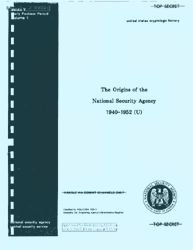According to medieval philosophers, at least some classes of parts and wholes are not reducible to other classes of parts and wholes. Medieval philosophers offer several ways of distinguishing between the various types of part.
One method that medieval philosophers use is the predicative criterion (Boethius In Cic. top. 289.11-16; Abelard Dialectica 546.24-547.5; Buridan Summulae 8.1.4). According to this criterion, the mark of a subjective part is that its whole is entirely attributable to it. An integral whole, on the other hand, is not predicable in its entirety of its part. The integral whole can only be predicated of the parts when they are taken together all at once. For example, Socrates is a subjective part of the species Human Being. Hence, Socrates is a human being. Socrates’ hand is an integral part of Socrates. A hand is not Socrates. Socrates is only predicable of the hand, when the hand is taken together with all the other parts, so that this collection of parts (including the hand) is Socrates.
Some medieval philosophers seem to suggest that the predicative relationship that obtains between a part and its whole is itself merely a sign that some deeper relation obtains between the two items. Aquinas, for example, suggests some deeper relations that explain what it is to be an integral part of something, what it is to be a potential part of something, and what it is to be a subjective part of something (Summa theologiaeI, q. 77, art. 1; and III, q. 90, art. 3, responsio):
1. x is a subjective part of y because the total essence and power of y is present to x.
2. x is a potential part of y because the total essence of y applies to x, but the total power of y does not.
3. x is an integral part of y because neither the total essence, nor the total power of y is present in x taken singularly.
Aquinas implies that the relations spelled out in (1)-(3) ground the various predicative relations that obtain between parts and wholes. Aquinas’ characterization of the differences between the types of wholes and parts also attempts to account for the peculiar behavior of potential wholes. Potential wholes are predicable of their potential parts - that is, the rational soul and the vegetative soul are both soul - but the potential parts do not belong to the same species. The rational power of the soul has a different definition than the vegetative power. Other philosophers who appeal to the predicative criterion omit mention of the potential whole.
A second criterion that medieval philosophers sometimes offer is this: an integral whole always ‘‘draws together,’’ or ‘‘embraces’’ (comprehendere), some quantity, whereas a universal whole does not embrace a quantity (Abelard Dialectica 546.21-27). Notice that this criterion does not require that the parts themselves possess any quantity. For example, an angel is immaterial, and hence, does not possess a quantity. Nonetheless, one can make an integral whole out of two angels, since that whole has a quantity, namely, a number.
A third way to distinguish between the universal whole and the integral whole is by determining whether the parts actually compose the whole (see William of Ockham Expositio in librum Porphyrii 2.16 [Opera philosophica II, 54]; John Buridan Summulae 6.4.4). On this view, the parts of a universal do not strictly speaking compose the whole, whereas the parts of an integral whole do literally compose the whole. That is, in order to construct an integral whole, one needs to first find some parts. A universal is not a construction out of particulars. One does not need to first gather together some particular humans in order to make the universal Human Being.
Given that the parts compose the integral whole, it may seem that an integral whole depends upon its parts, whereas a universal whole does not require the existence of its subjective parts in order to exist. In his De divisione, Boethius uses differences of priority to distinguish between the genus and the whole (879b-c). The genus is prior to its species, whereas a whole is posterior to - that is, depends upon - its parts. In later treatments of parts and wholes, the universal whole - which Boethius lumps together with integral and potential wholes - is distinguished from the integral wholes by appealing to relations of priority. Often these relations of priority are encapsulated in the maxims associated with the various topics (loci). (On the medieval understanding of the topics see Green-Pedersen 1984 and Stump 1982.) For example, the maximal proposition that corresponds to the topic from the integral part is the following
Removed.
In the next section, the reader will see that there is significant disagreement over how to interpret this maximal proposition.
When discussing these criteria for distinguishing between types of wholes and parts, many philosophers make no mention of potential wholes. Again, this may be because potential wholes are thought to be reducible to either integral wholes or universal wholes. Or it may be that the philosophers who propose these criteria for distinguishing between integral wholes and universal wholes do not think that potential wholes are true wholes. For example, such a philosopher might think that the soul is mereologically simple (i. e., has no parts), and that mereological language, when applied to the soul, is figurative. The nature of the potential whole is not well understood. Much more research is needed in this area.




 World History
World History









